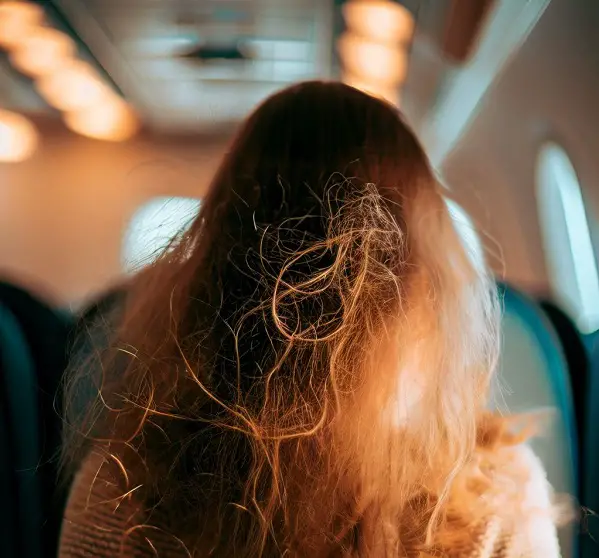Flying can be a delightful experience for many, but it often comes with a peculiar problem – frizzy hair. If you’ve ever wondered why your hair seems to have a mind of its own when you’re soaring above the clouds, you’re not alone. In this article, we’ll delve into the science behind why your hair gets frizzy on a plane and explore some practical tips to manage this hair-raising issue.
Why does my hair get frizzy on a plane?
Hair gets frizzy on a plane primarily due to low humidity levels in the cabin. Aircraft cabins have controlled humidity to reduce corrosion and maintain comfort, but this low humidity can strip moisture from your hair, causing it to become dry and frizzy.
Understanding the Phenomenon
The Role of Humidity
One of the primary culprits behind frizzy hair on a plane is the low humidity inside the aircraft cabin. Humidity refers to the amount of moisture in the air, and it plays a crucial role in maintaining the health and appearance of your hair. In most airplanes, the humidity levels are significantly lower than what your hair is accustomed to on the ground.
Lack of Moisture
When your hair is exposed to dry air, it tends to lose moisture rapidly. This causes the outer layer of your hair, known as the cuticle, to become rough and raised. As a result, your hair becomes more porous and prone to absorbing moisture from the surrounding environment, which can lead to frizz.
Static Electricity
Another factor contributing to frizzy hair on planes is static electricity. The friction between your hair and the fabric of the seat, as well as the constant movement of passengers, can generate static charges. These charges cause individual hair strands to repel each other, creating a frizzy appearance.
Coping with Frizz
Hydration is Key
To combat frizz while flying, it’s essential to keep your hair well-hydrated. You can achieve this by using a leave-in conditioner or a hydrating hair spray before your flight. These products help seal the cuticle and lock in moisture, preventing excessive dryness.
Avoid Overstyling
Overstyling your hair before a flight can exacerbate frizz. Heat styling tools like straighteners and curling irons can strip your hair of moisture, making it more susceptible to frizz. Opt for a more natural hairstyle while traveling to minimize damage.
Protective Hairstyles
Consider wearing protective hairstyles like braids, buns, or ponytails. These styles keep your hair contained and reduce friction, which can help minimize static and frizz.
Conclusion
In conclusion, the frizziness of your hair on a plane can be attributed to the low humidity levels, lack of moisture, and static electricity within the cabin. To combat this issue, prioritize hair hydration, avoid excessive styling, and opt for protective hairstyles. By following these tips, you can maintain smooth and manageable hair even at 30,000 feet.
FAQs
1. Is frizzy hair on a plane harmful to my hair’s health?
Frizzy hair on a plane is more of a cosmetic issue than a health concern. However, excessively dry hair can become brittle over time, so it’s essential to keep it hydrated.
2. Can I use a regular hair conditioner during a flight?
While you can use a regular conditioner, a leave-in conditioner or hydrating hair spray is more effective at combating frizz in low-humidity environments.
3. Are there any specific hair products designed for air travel?
Some brands offer travel-sized hair products designed to combat the effects of low humidity during flights. These can be convenient for on-the-go hair care.
4. How can I prevent static electricity in my hair while flying?
To prevent static, you can use an anti-static spray or carry a small bottle of hair serum. Additionally, choosing natural fabrics for clothing can reduce friction and static.
5. Does the type of aircraft affect hair frizz?
Yes, the type of aircraft can impact humidity levels. Smaller regional planes often have lower humidity than larger, long-haul aircraft, which can make frizz more noticeable.
